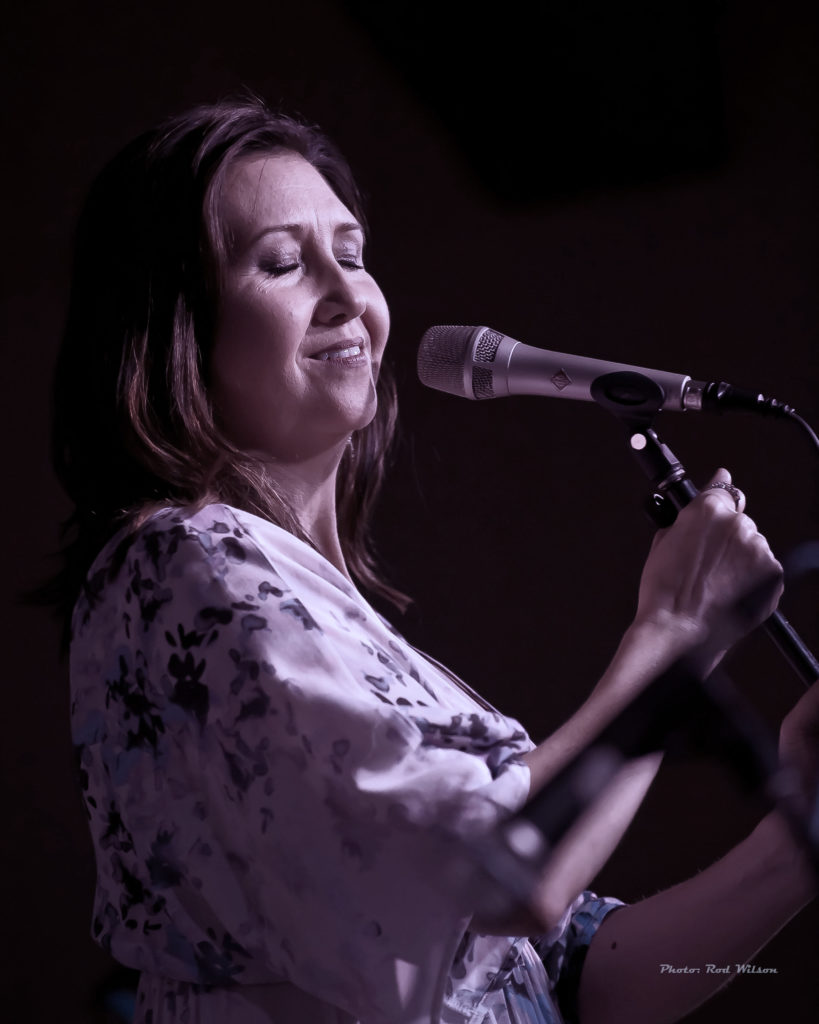
STAGE 64 WINTER JAZZ AND BLUES CONCERT SERIES : Melody Diachun and her Quartet. Saturday October 28, 2017, 8pm
Black Orpheus (Portuguese: Orfeu Negro) is a 1959 film made in Brazil by French director Marcel Camus and starring Marpessa Dawn and Breno Mello. It is based on the play Orfeu da Conceicao by Vinicius de Moraes, which is an adaptation of the Greek legend of Orpheus and Eurydice , set in the modern context of a favela in Rio de Janeiro during Carnaval. The film was an international co-production among companies in Brazil, France and Italy. The film is particularly noted for the musical soundtrack by two Brazilian composers: Antonio Carlos Jobim , whose song “A Felicidade” opens the film; and Luiz Bonfa, whose Manha de Carnaval and Samba de Orfeu have become bossa nova classics. ….. Wikipedia.
In the early 1960’s that Brazillian film made its mark on me and the world of cinema and music. On it’s release it won an Oscar for the best foreign film of the year and the sound track introduced the world to the wonders of Brazilian music. I remember the film well. After all, I saw it on the big screen about seven times in the first year of it’s release, and over the years I wore out a VHS copy and I still have a DVD version on my shelf at home. For Jazz players the music was a revelation. Here was a form of music that used jazz harmonic language and improvisational techniques along with new sophisticated melodies and rhythms. The words may have been in Portuguese but the musical language was challenging, sensual and, in some ways, the antithesis of the Hard Bop jazz style of the day. Brazilian classical guitarist Laurindo Almeida and Californian saxophonist Bud Shank had explored and recorded Bossa Nova as early as 1953 but it was the album Jazz Samba by the jazz tenor sax player Stan Getz and guitarist Charlie Byrd, along with the hit single Desafinado, that was the start of Bossa Nova as it is now generally understood. Stan Getz gained the benefit of Charlie Byrd’s 1961 serendipitous tour of Brazil. Byrd had fallen in love with the music while on tour there and when he returned to the USA he sought out Stan Getz, played him the discs he’d brought back from Brazil, and suggested they get together and record their own album in a Brazilian style. The rest is history. The Stan Getz and Charlie Byrd collaborations were monumentally successful and Jazz musicians adopted the style with a vengeance. They were the first of many musicians to do so and to this day Bossa Nova still continues to hold a grip on the imagination of jazz musicians. It may have been a craze at the time but it is one I knew would last.
On, the other hand, around that same time “The Fab Four” (aka The Beatles) launched their own musical craziness on the pop world. At the time I didn’t think the music would survive the teeny-bopper hysteria that almost drowned it out. Another case of music so loud you can’t actually hear it. I couldn’t see the hysteria or the music lasting. I guess I was wrong. The hysteria faded away and the music did survive the craziness and in this day and age their songs are standards that rate right up there with the tunes in the “The American Song Book”.
That brings us to the Melody Diachun concert on Saturday night at Stage 64 in Kimberley. Her premise for the evening was to bring together the music of the Bossa Nova era (mostly the songs of Antonio Carlos Jobim) and the music of the Beatles into 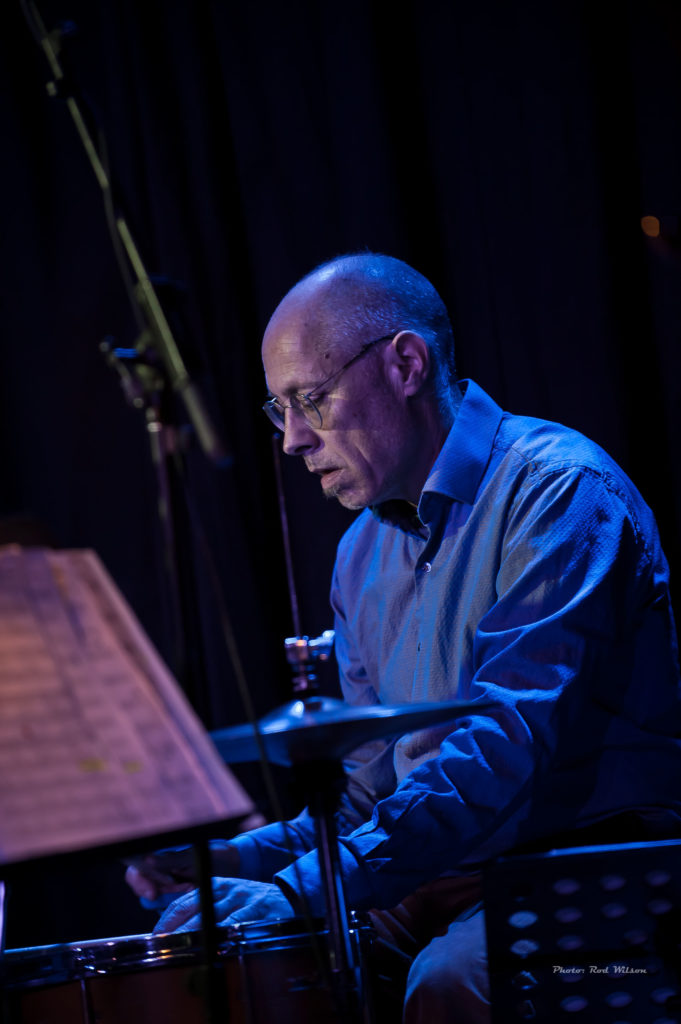 a night of pulsing rhythms, beautiful melodies and great lyrics delivered with artful arrangements and solo improvisations by a group of stellar musicians from the Nelson area. The drummer Steven Parish and bass player Mark Spielman anchored the band for
a night of pulsing rhythms, beautiful melodies and great lyrics delivered with artful arrangements and solo improvisations by a group of stellar musicians from the Nelson area. The drummer Steven Parish and bass player Mark Spielman anchored the band for 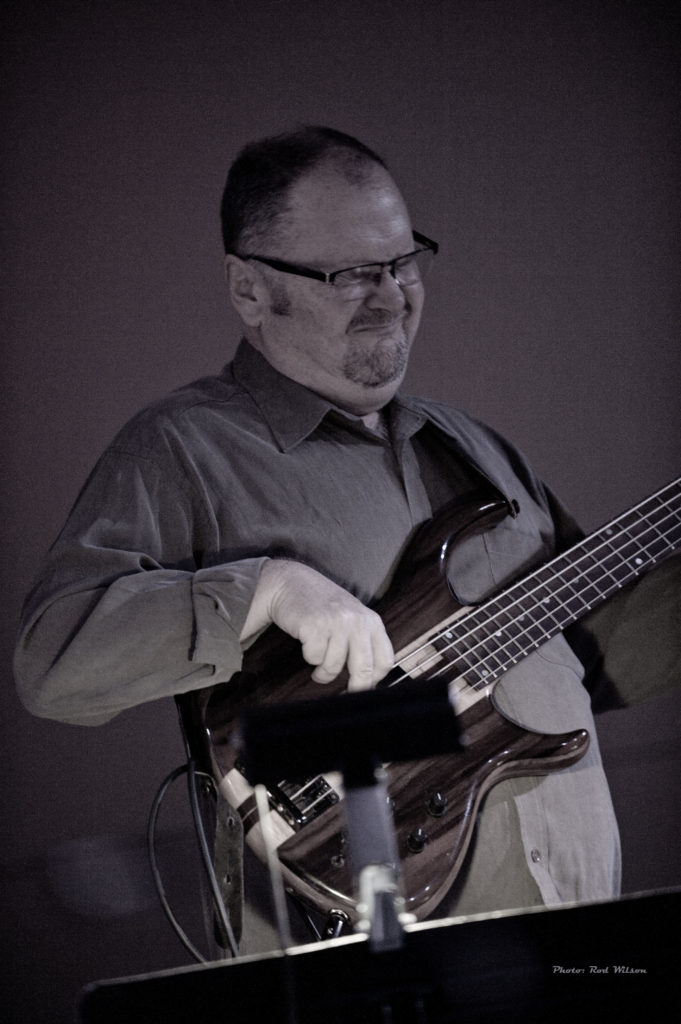 the rhythmic, melodic and harmonic adventures of Melody Diachun on vocals and shakers, Clinton Swanson on tenor sax and flute and Doug Stephenson on nylon and steel string guitars. Most of the Bossa Nova material was from the pen of Antonio Carlos Jobim and included Quiet Nights (Corcovada), If You Never Come to Me, The Girl from Ipanema, Samba do Aviao, One Note Samba, Dindi, and a nice mish/mash of Insensitive with the Beatles tune Yesterdays. Most of the songs were sung in English with the occasional foray into Portuguese. Although not exactly a Bossa Nova song, but never-the-less appropriate for the evening, the group performed Horace Silver’s jazz classic Song for my Father. Horace’s father came from the Cape Verde Islands that, coincidently, has a rich Portuguese based musical heritage similar to Brazil. Interspersed among Jobim’s songs there were the following Beatles songs Hard Days Night , Eleanor Rigby, Blackbird, Let It Be, All you need is Love and John Lennon’s Imagine. The only song that was really outside the box was Cole Porter’s Night and Day and that was still a good fit for the evening. Melody’s vocals were in top form and the soloists were a joy to hear. Doug Stephenson’s nylon string and steel guitar work was a revelation as, in previous Kimberley concerts, he had been masquerading as a bass player. Because he looks like he is having way too much fun to be legal I do worry about Doug. Clinton Swanson has performed in Kimberley a number of times and his full bodied tenor sax solos, as always, were spot on. Melody’s introductions to the songs were delightful and entertaining.
the rhythmic, melodic and harmonic adventures of Melody Diachun on vocals and shakers, Clinton Swanson on tenor sax and flute and Doug Stephenson on nylon and steel string guitars. Most of the Bossa Nova material was from the pen of Antonio Carlos Jobim and included Quiet Nights (Corcovada), If You Never Come to Me, The Girl from Ipanema, Samba do Aviao, One Note Samba, Dindi, and a nice mish/mash of Insensitive with the Beatles tune Yesterdays. Most of the songs were sung in English with the occasional foray into Portuguese. Although not exactly a Bossa Nova song, but never-the-less appropriate for the evening, the group performed Horace Silver’s jazz classic Song for my Father. Horace’s father came from the Cape Verde Islands that, coincidently, has a rich Portuguese based musical heritage similar to Brazil. Interspersed among Jobim’s songs there were the following Beatles songs Hard Days Night , Eleanor Rigby, Blackbird, Let It Be, All you need is Love and John Lennon’s Imagine. The only song that was really outside the box was Cole Porter’s Night and Day and that was still a good fit for the evening. Melody’s vocals were in top form and the soloists were a joy to hear. Doug Stephenson’s nylon string and steel guitar work was a revelation as, in previous Kimberley concerts, he had been masquerading as a bass player. Because he looks like he is having way too much fun to be legal I do worry about Doug. Clinton Swanson has performed in Kimberley a number of times and his full bodied tenor sax solos, as always, were spot on. Melody’s introductions to the songs were delightful and entertaining.
Here are some images from a magical evening of music.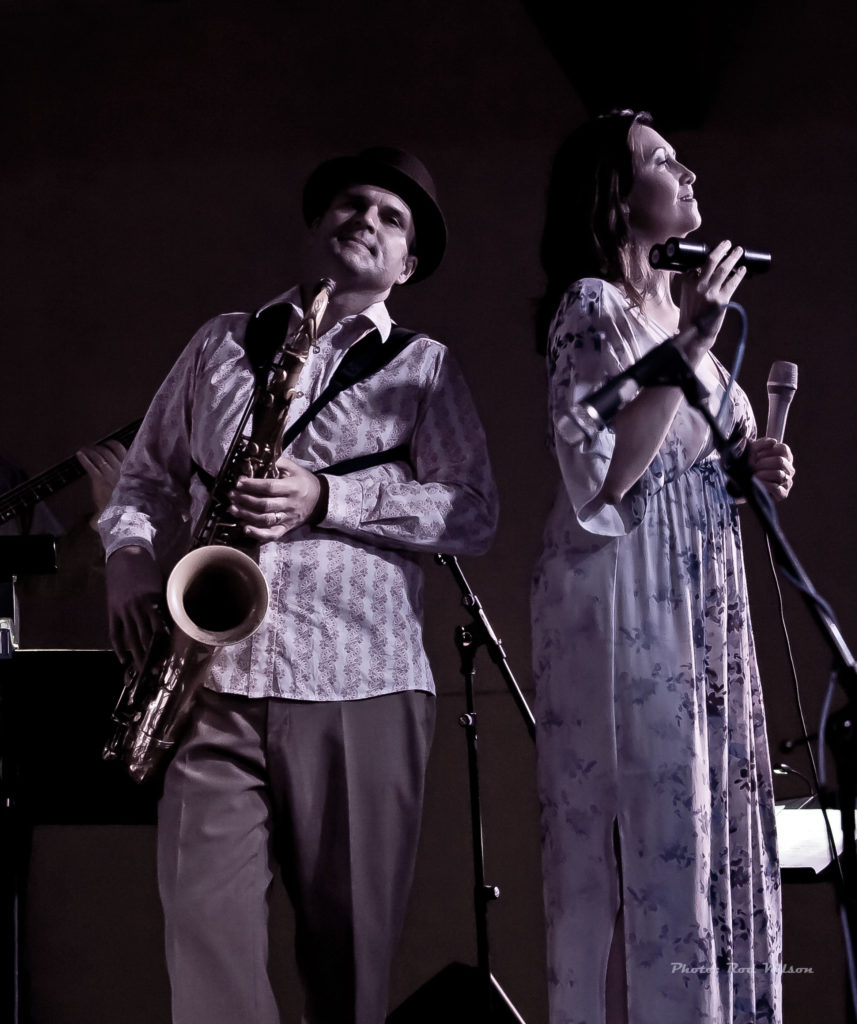
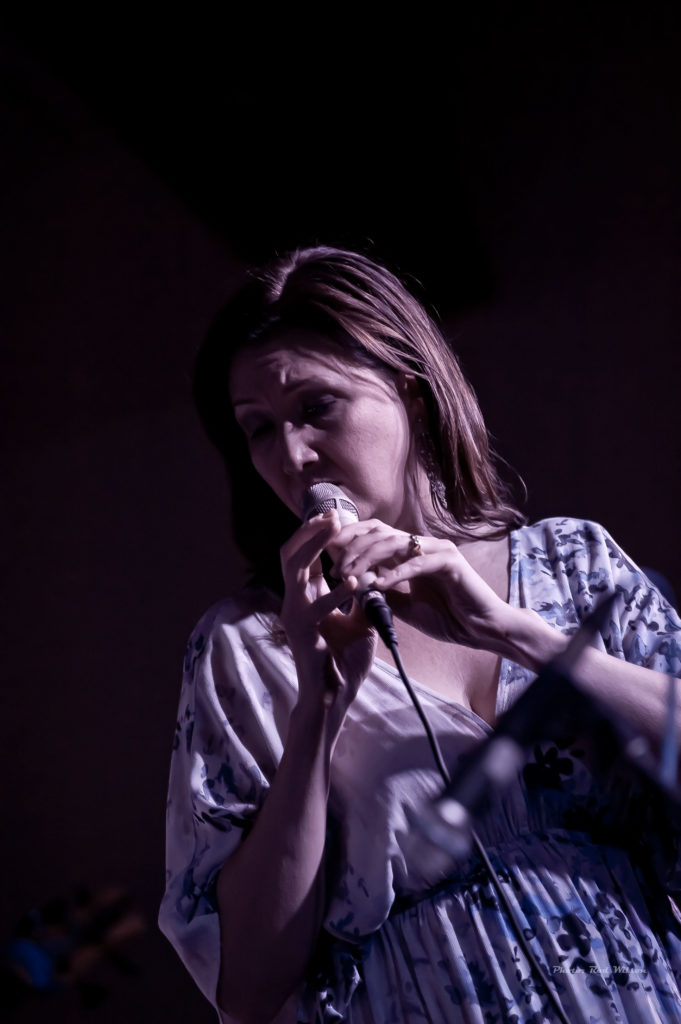

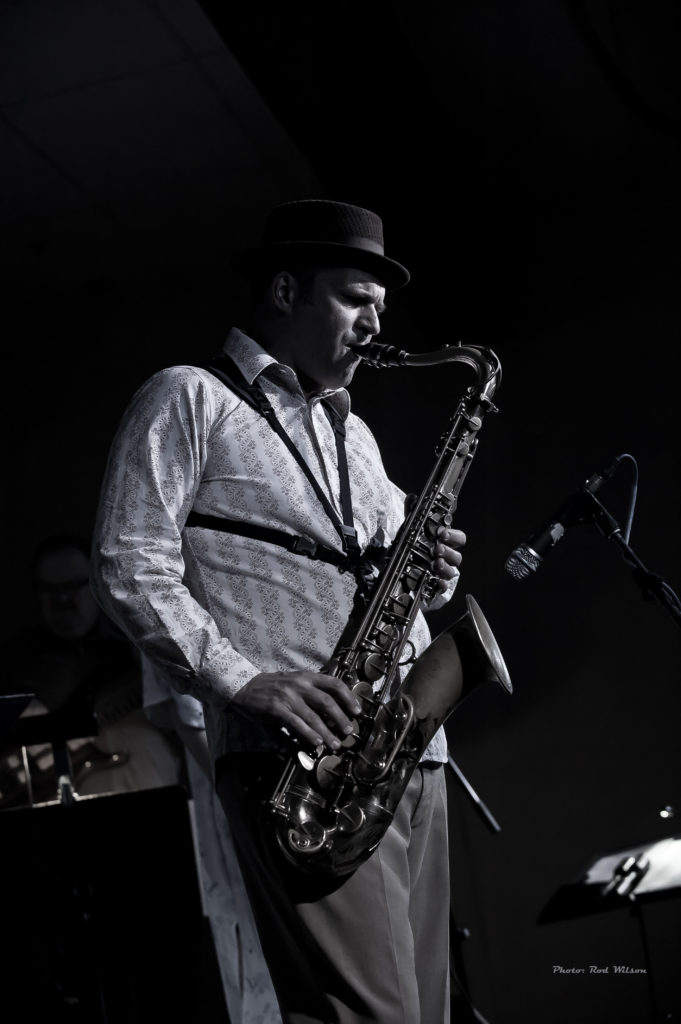
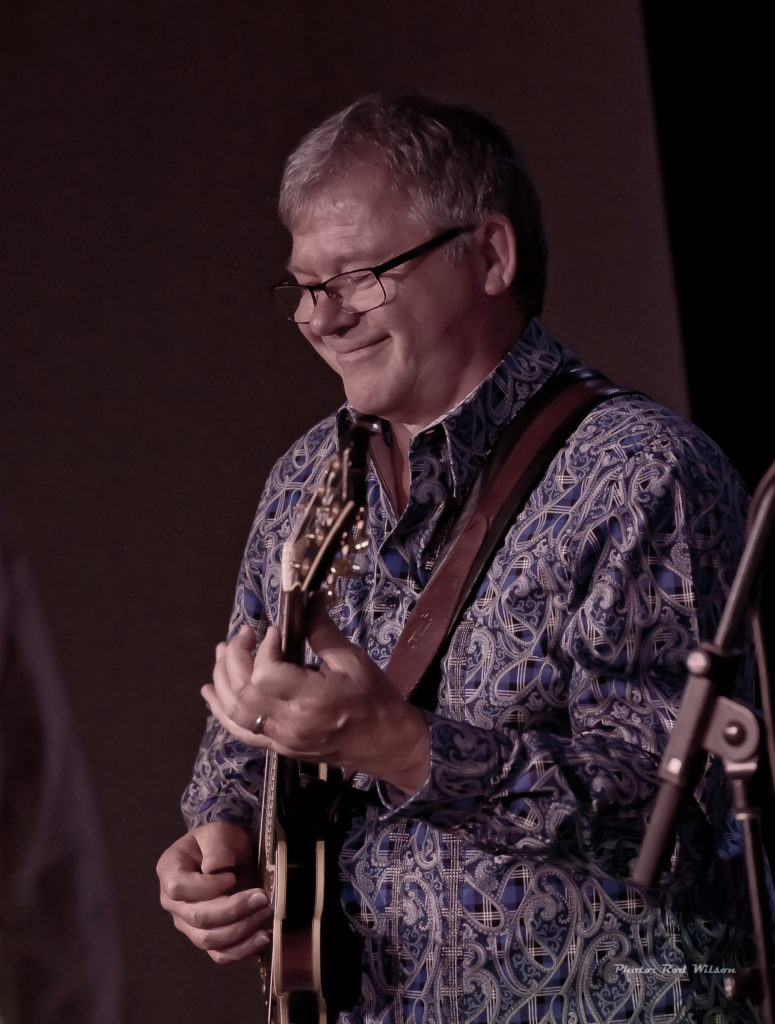

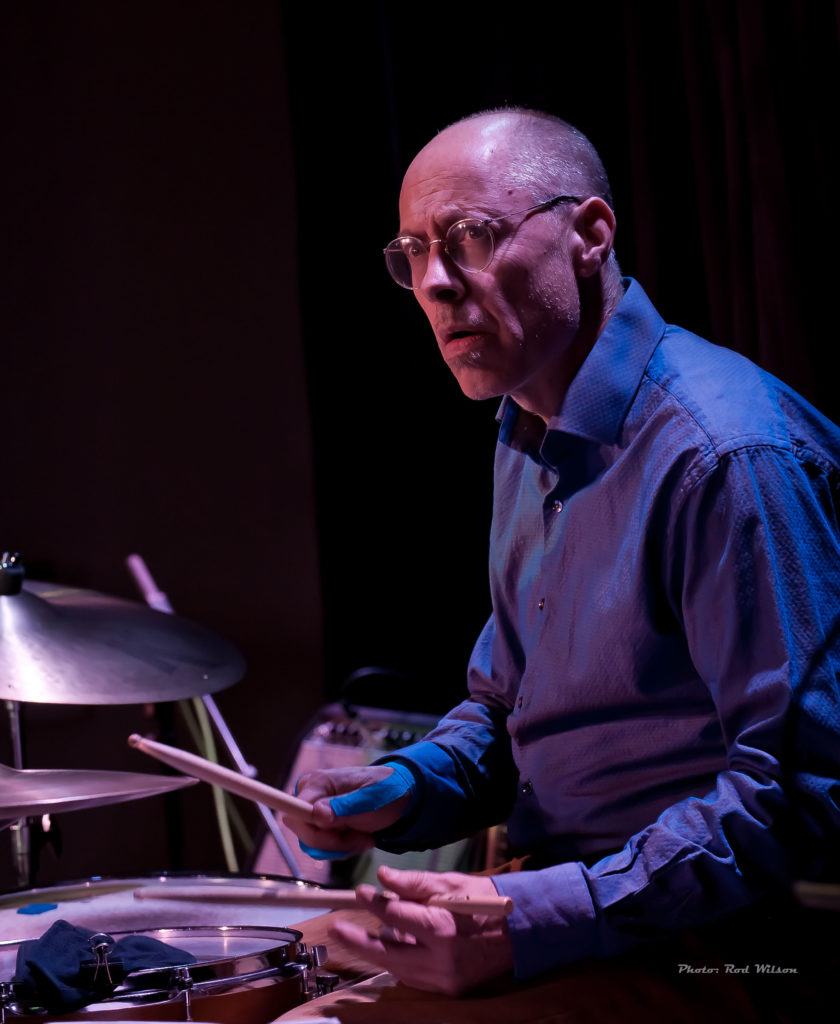
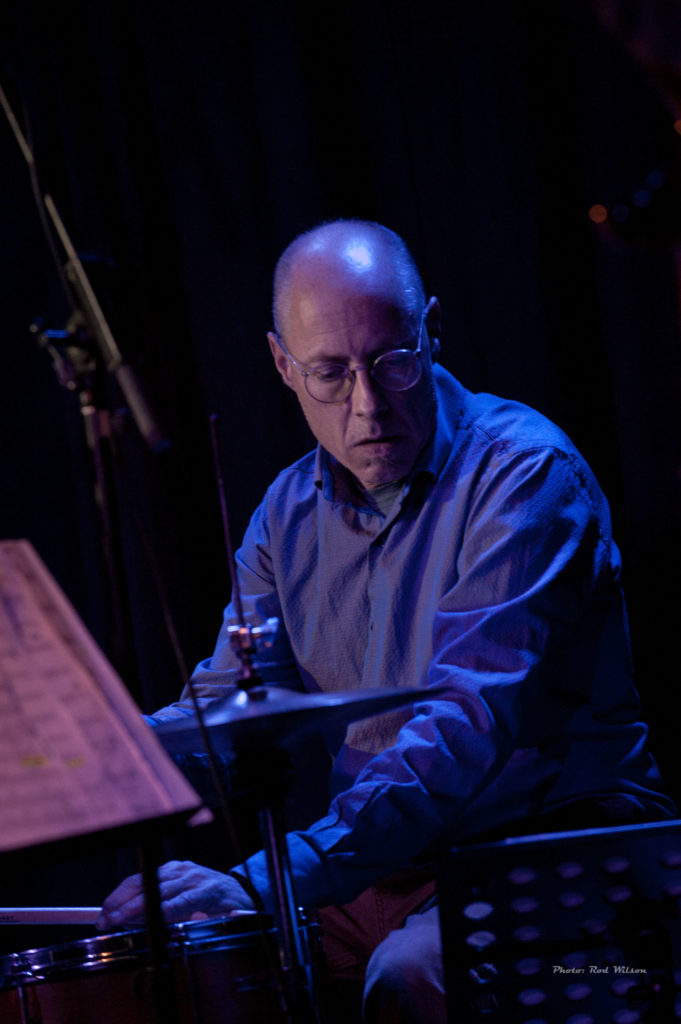
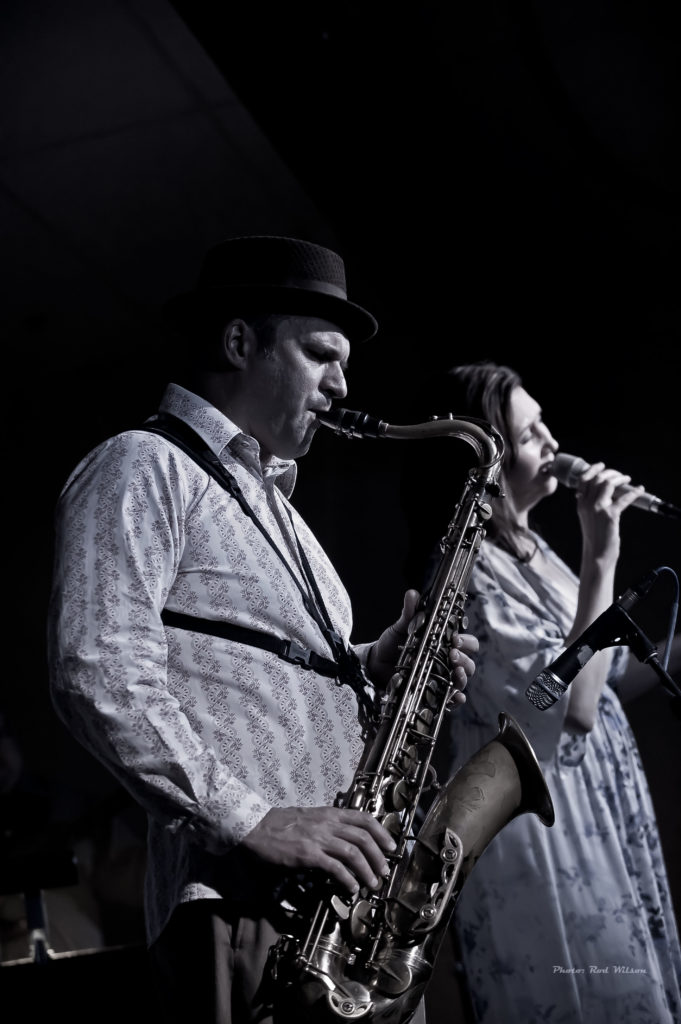
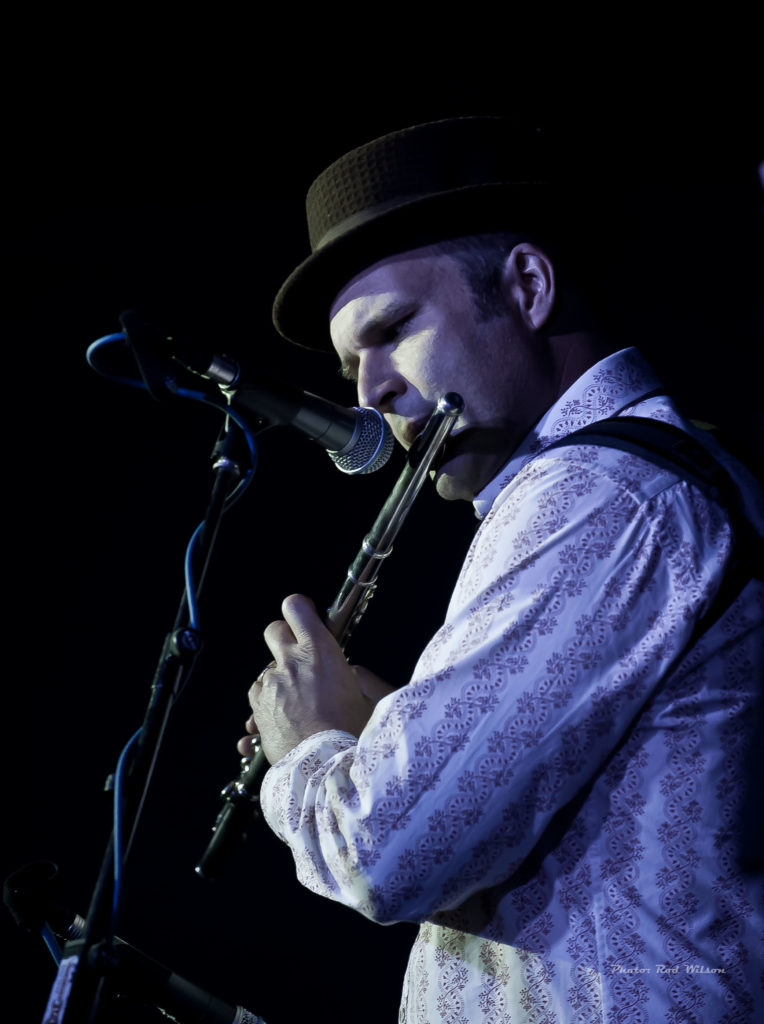
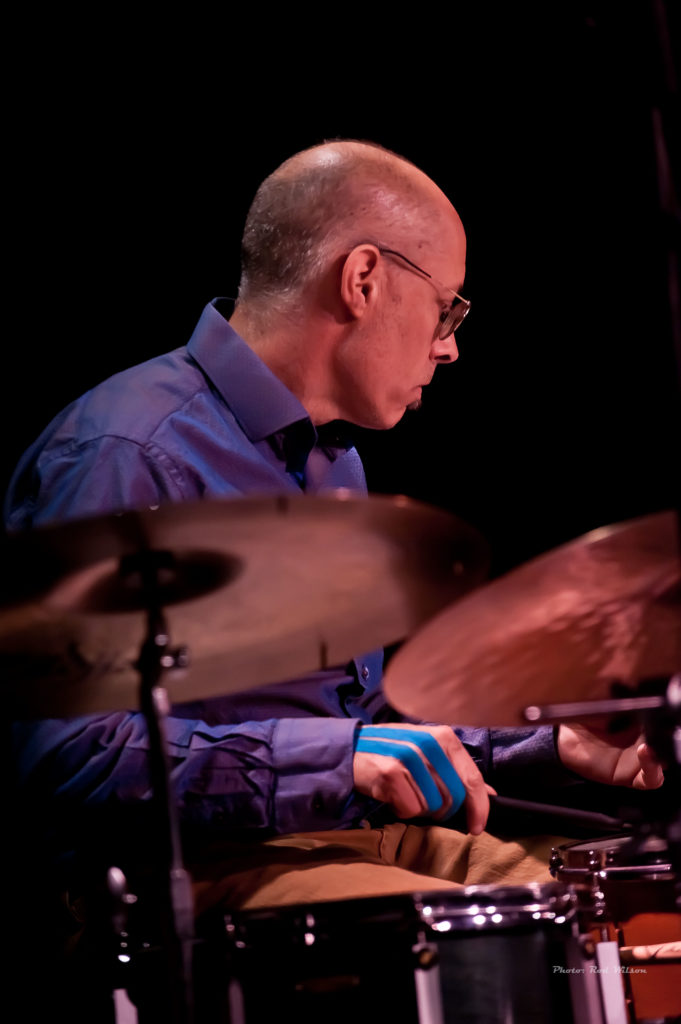
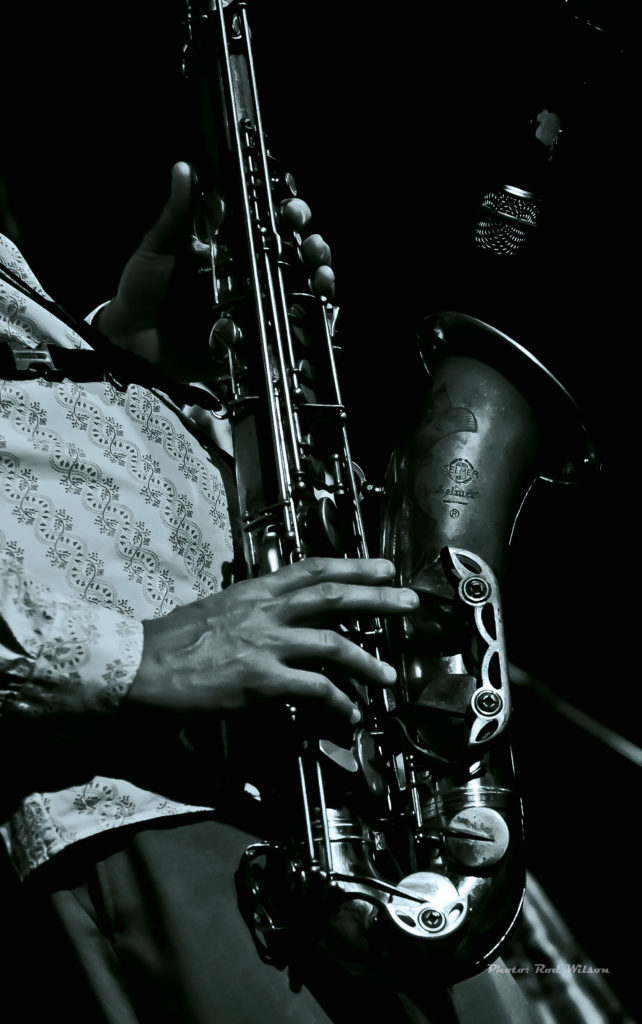
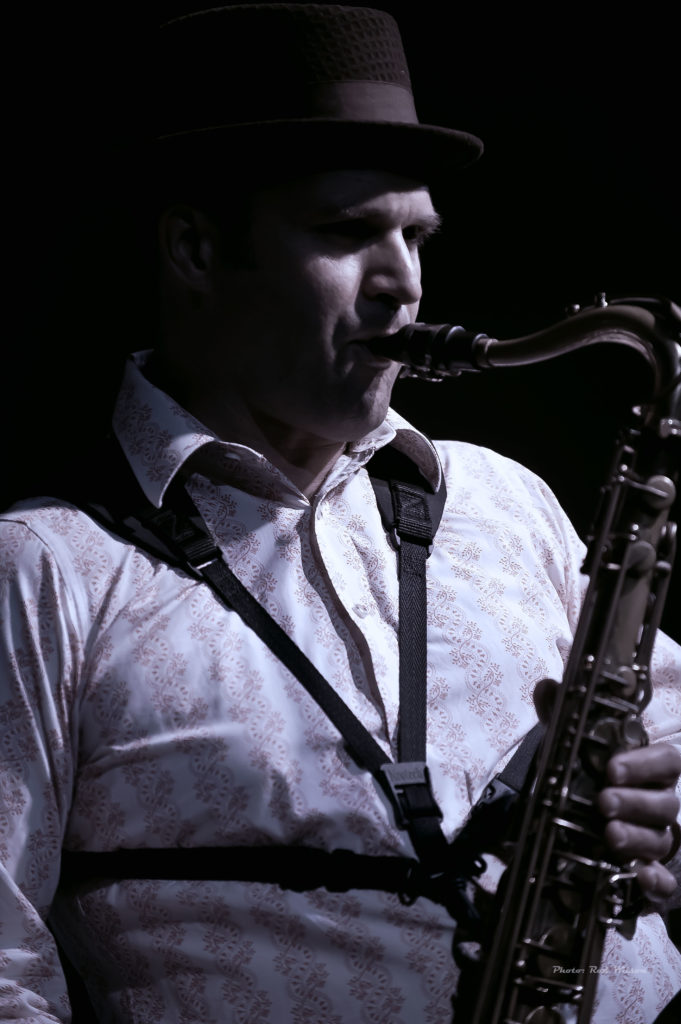
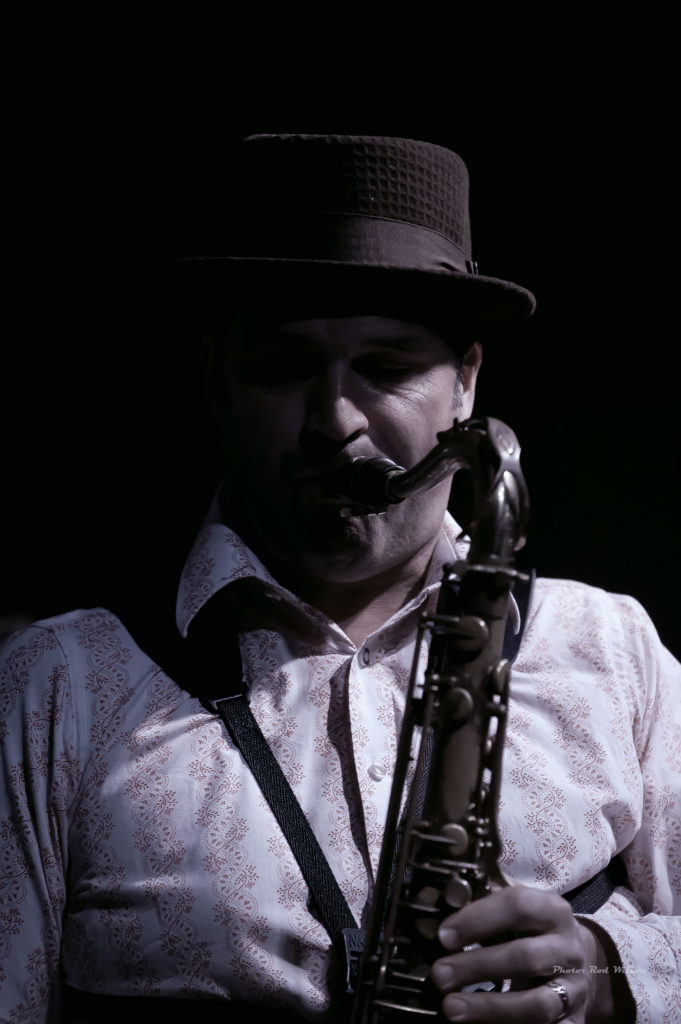

The band and the audience would like to thank Keith, the organizing committee, the volunteers, Ray on sound and lights, the Burrito Grill, A B&B at 228 and the Stem Winder for the support that made this concert series possible. On a final note a comment from my buddy Bill St. Amand summing up the evening …….
“IT DOESN’T GET MUCH BETTER THAN THIS”.
@@@@@@@@@@@@

Thank you very much, Rod! I love the detail about the history of the music and the background about your personal love of Bossa Nova in this review. Thank you also for your generous offer allowing us to use your wonderful photos.
Until next time,
Melody